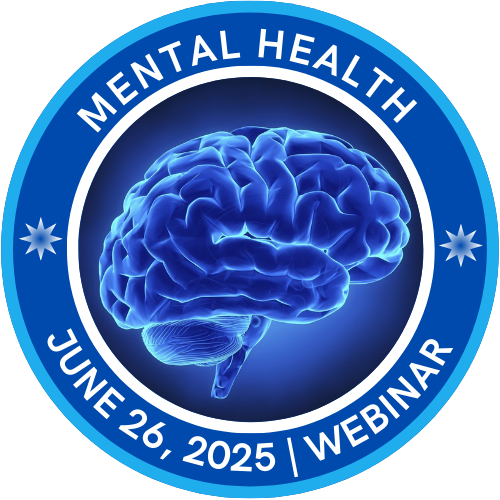Join us on June 26, 2025, for the Mental Health and Human Resilience Webinar, bringing together mental health professionals, researchers, clinicians, and advocates to explore the latest advancements in psychological well-being and resilience-building. This year’s theme, "Empowering Minds: Innovations in Mental Health and Resilience," will focus on groundbreaking research, therapeutic strategies, and holistic approaches to strengthening mental resilience in individuals and communities. Engage in insightful discussions on stress management, trauma recovery, emotional intelligence, workplace well-being, and the intersection of neuroscience and mental health. Don’t miss this opportunity to connect with global experts, gain valuable insights, and contribute to the future of mental health care and human resilience.
Mental health and human resilience are fundamental to emotional, psychological, and social well-being, shaping how individuals navigate life’s challenges and maintain overall stability. Building resilience is essential for personal growth and societal well-being, as it enhances stress management, emotional regulation, and the ability to adapt in the face of adversity. Mental resilience empowers individuals to cope with hardships, fostering stronger relationships, better decision-making, and improved quality of life. As a critical area of study and practice, mental health care focuses on identifying, addressing, and supporting individuals facing various psychological challenges. These may range from stress and anxiety to complex conditions like PTSD and chronic depression. Experts in the field—including psychologists, psychiatrists, and mental health professionals—employ a holistic, evidence-based approach that integrates therapy, self-care strategies, mindfulness techniques, and lifestyle interventions to enhance resilience and well-being. The field of mental health and resilience continues to evolve, embracing technological innovations, neuroscience insights, and community-based support systems to improve mental health outcomes. As awareness grows, the focus remains on breaking stigmas, expanding access to mental health care, and fostering resilience at individual and societal levels.

The mental health and human resilience market is expected to experience substantial growth from 2025 to 2035, driven by rising awareness, increasing mental health disorders, advancements in digital therapeutics, and growing investments in mental health technologies. The global mental health market, valued at $383.31 billion in 2024, is projected to reach $537.97 billion by 2030, growing at a CAGR of 6.2%. The digital mental health market, including teletherapy, mobile apps, and AI-driven mental health solutions, is estimated at $11.2 billion in 2024 and is expected to grow to $50.5 billion by 2035, at a CAGR of 14.5%. The workplace mental health sector, currently valued at $48.9 billion in 2025, is forecasted to reach $126.4 billion by 2035, expanding at a CAGR of 9.8%, as employers invest in mental well-being programs. The mental health AI and machine learning market, valued at $2.4 billion in 2024, is anticipated to grow at a CAGR of 19.4%, reaching $18.7 billion by 2035, with AI-driven diagnostics and personalized treatment solutions gaining traction. The psychedelic-assisted therapy market, currently at $4.2 billion in 2025, is forecasted to reach $18.9 billion by 2035, with a CAGR of 16.3%, driven by ongoing research into psilocybin and ketamine-based treatments.